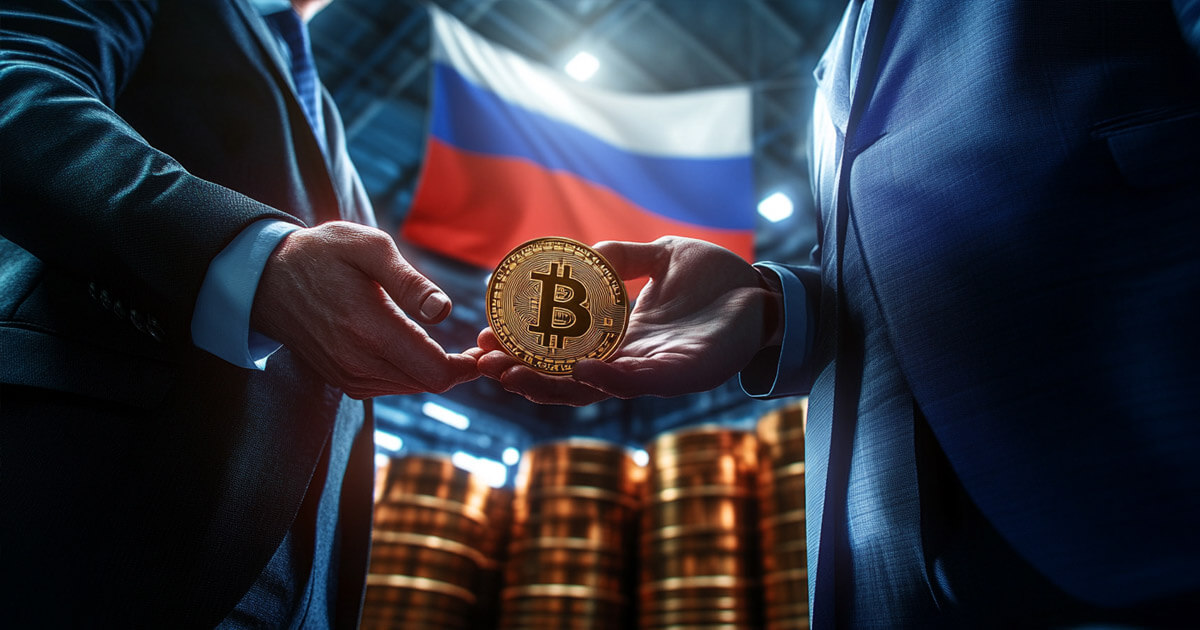
Russia is actively using Bitcoin and other cryptocurrencies to counteract the impact of Western sanctions on its economy, Reuters reported on Dec. 25.
The report cited Finance Minister Anton Siluanov, who recently stated that Russian companies have begun to utilize digital currencies, particularly Bitcoin mined within the country, for international transactions. He reportedly said:
Besides Bitcoin, blockchain analysis firm Chainlysis suggested that stablecoins like USDT and USDC play a role in Russia’s international trade. These digital assets offer high liquidity, but their centralized control could challenge their broader adoption.
This strategic move comes after Western nations imposed sanctions following Russia’s actions in Ukraine. These measures have significantly restricted the ability of Russian firms to engage in international trade through conventional banking systems.
As a result, Russia has sought alternatives, with cryptocurrencies becoming a prominent solution.
In July, Russian legislators passed a law permitting the use of digital currencies in cross-border trade. By November, President Vladimir Putin had formalized legislation categorizing cryptocurrencies as property for foreign trade purposes. This move introduced tax incentives for digital transactions and exempted crypto mining and sales from VAT.
Putin has also openly supported digital currencies, describing them as unstoppable tools to enhance economic efficiency and stability.
Siluanov echoed this sentiment, expressing confidence that crypto adoption in international trade will grow in the coming year. He said these measures will continue expanding, providing Russian companies greater flexibility in navigating global markets.
“We believe they should be expanded and developed further. I am confident this will happen next year.”
Despite these advancements, Russia’s crypto adoption has limitations. For context, the government plans to enforce a six-year mining ban in ten regions starting in January 2025 to address energy concerns.
 Bitcoin
Bitcoin  Ethereum
Ethereum  Tether
Tether  XRP
XRP  USDC
USDC  TRON
TRON  Lido Staked Ether
Lido Staked Ether  Dogecoin
Dogecoin  Figure Heloc
Figure Heloc  Cardano
Cardano  Bitcoin Cash
Bitcoin Cash  Wrapped stETH
Wrapped stETH  WhiteBIT Coin
WhiteBIT Coin  Wrapped Bitcoin
Wrapped Bitcoin  Wrapped eETH
Wrapped eETH  USDS
USDS  Chainlink
Chainlink  Binance Bridged USDT (BNB Smart Chain)
Binance Bridged USDT (BNB Smart Chain)  Monero
Monero  LEO Token
LEO Token  WETH
WETH  Stellar
Stellar  Coinbase Wrapped BTC
Coinbase Wrapped BTC  Sui
Sui  Ethena USDe
Ethena USDe  Litecoin
Litecoin  Zcash
Zcash  Avalanche
Avalanche  Hyperliquid
Hyperliquid  Shiba Inu
Shiba Inu  Hedera
Hedera  Canton
Canton  USDT0
USDT0  World Liberty Financial
World Liberty Financial  sUSDS
sUSDS  Dai
Dai  Toncoin
Toncoin  Cronos
Cronos  Ethena Staked USDe
Ethena Staked USDe  PayPal USD
PayPal USD  Uniswap
Uniswap  Polkadot
Polkadot  USD1
USD1  Mantle
Mantle  Rain
Rain  MemeCore
MemeCore  Bittensor
Bittensor  Aave
Aave 


